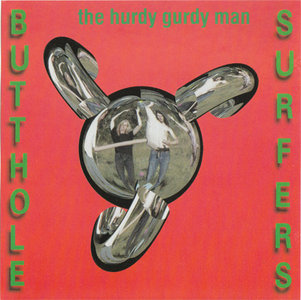Related Research Articles

The hurdy-gurdy is a string instrument that produces sound by a hand-crank-turned, rosined wheel rubbing against the strings. The wheel functions much like a violin bow, and single notes played on the instrument sound similar to those of a violin. Melodies are played on a keyboard that presses tangents—small wedges, typically made of wood or metal—against one or more of the strings to change their pitch. Like most other acoustic stringed instruments, it has a sound board and hollow cavity to make the vibration of the strings audible.
The best known musician from the Occitan region of Limousin is probably the piper Eric Montbel, a former member of such bands as Lo Jai, Le Grand Rouge, and Ulysse; he plays the chabreta, or Limousin bagpipe. Along with him and other pipers, the region is known for Corrèze's distinct violin tradition as well as the hurdy-gurdy. The fife is also popular

Keith MacLeod, was an English musician who was a part of the Hertfordshire folk and blues scene from 1959 onwards. He played in St Albans alongside Mick Softley and Maddy Prior and toured with John Renbourn. Influences include Softley, Ramblin' Jack Elliott, Derroll Adams, Jesse Fuller, Big Bill Broonzy, Snooks Eaglin, Reverend Gary Davis and Davey Graham.
Hurdy Gurdy emerged from the Danish group Peter Belli and the Boom Boom Brothers in June 1967, when three members of the B.B. Brothers, guitarist Claus Bøhling, drummer Jens Peter Marquard Otzen and British vocalist and bassist Mac MacLeod formed the power trio. Inspired by Cream but with more psychedelic leanings, they split from Peter Belli and MacLeod named the band 'Hurdy Gurdy'. They had considerable success in Scandinavia, breaking many attendance records for their live shows. The band moved to England in early 1968, after MacLeod had been deported from Denmark.

The Hurdy Gurdy Man is the sixth studio album by Scottish singer-songwriter Donovan. It was released in the US in October 1968 on Epic Records, but not in the UK due to a continuing contractual dispute that also prevented Sunshine Superman (1966) and Mellow Yellow (1967) from being released there. A songbook of lead sheets to the album was nonetheless issued in both countries.

Nicolas Chédeville was a French composer, musette player and musette maker.

"Hurdy Gurdy Man" is a song by the Scottish singer-songwriter Donovan. It was recorded in April 1968 and released the following month as a single. The song gave its name to the album The Hurdy Gurdy Man, which was released in October of that year in the United States. The single reached number 5 on the Billboard Hot 100 in the U.S. and number 4 on the UK Singles Chart.

The Hurdy Gurdy Man is a studio EP by American alternative rock band Butthole Surfers, released in 1990.

Nigel Eaton is a British multi-instrumentalist and composer best known for playing the hurdy-gurdy. Born in Lyndhurst, Eaton played the piano and cello before switching to the hurdy-gurdy in 1981 when his father, Christopher Eaton, began manufacturing them. Eaton has been described as the "foremost hurdy-gurdy player in popular music in North America and Europe".
"Season of the Witch" is a song by Scottish singer-songwriter Donovan released in August 1966 on his third studio album, Sunshine Superman. The song is credited to Donovan, although sometime collaborator Shawn Phillips has also claimed authorship. Because of a dispute with Donovan's record company, a UK edition with the song was not released until June 1967.
Hållbus Totte Mattson is a multi-instrumentalist folk musician from Dalarna, Sweden. Mattson's instruments include the lute, baroque lute, mandora, bass mandora, hummel, classical guitar, baroque guitar Mora-oud, accordion, Swedish dulcimer, hurdy-gurdy and vocals.
The kaisatsuko is a mechanical experimental musical instrument invented by Yuichi Onoue of Tokyo, Japan.
Ben Grossman is a Canadian hurdy-gurdy player, percussionist, composer and improviser. He performs both as a soloist and as part of various ensembles. Ben's work is featured on over 80 CDs. He has also been recorded for film soundtracks, radio dramas, as well as for television shows and commercials.
The hurdy-gurdy is a musical instrument.

Ye Olde Hurdy Gurdy Museum of Vintage Radio is a museum of communication history based in the Martello tower in Howth, Dublin.

Hurdy Gurdy is a 1929 animated short film which is presented by Carl Laemmle and was produced by Walter Lantz, who he and his wife would go on to make Woody Woodpecker. The film, which is animated by R.C. Hamilton, Bill Nolan and Tom Palmer, features Oswald the Lucky Rabbit, who is substituted for the organ grinder's dancer, after the original one is comically swallowed up by Oswald's bubblegum.

Patricia Büchler, known professionally as Patty Gurdy, is a German hurdy-gurdy musician, singer, songwriter and vlogger.

Storm Seeker is a German pirate-folk-metal band from Düsseldorf and Neuss. It was founded by the brothers Marius and Timo Bornfleth.
"Hurdy Gurdy Man" is a 1968 song by the Scottish singer-songwriter Donovan.
References
- ↑ B., Brian (11 November 2019). "Carnival Row Season 1 Soundtrack Gets a Release with Original Songs from Patty Gurdy" . Retrieved 21 July 2020.
- ↑ O'Toole, Leagues (2006). The Humours of Planxty. Ireland: Hodder Headline. ISBN 0-340-83796-9.